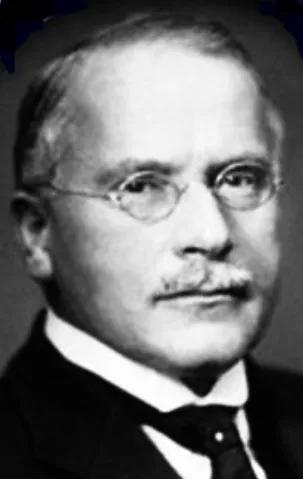
Spiritualism
Jung was so interested in the idea of studying this phenomenon of mind that he decided to make them a topic for his doctoral dissertation. He stumbled upon a small book on spiritualism and found that the phenomena described in the book were related to stories he had been familiar with as a childhood in the countryside, as well as stories told by his related family members. Things that fascinated him, such as predicting dreams, clocks shutting down at death, ghosts, and table turns. But his friends reacted to his thoughts either in utter disbelief, resistance, or even fear.
When he came home for the summer vacation, something happened that deeply affected him. The family heard a loud noise coming from the restaurant. They rushed over and found their round walnut dining table cracking right in the middle, not along a slit, but through a whole piece of solid wood. A few weeks later, another deafening crackling sound came from a bread knife lying in a sideboard, shattering into pieces along the edge of the knife. The knife was used during refreshments and then put away as usual.
Both Jung and his mother thought there must be some underlying cause for these two strange events. A few weeks later, he was invited to a séance, and he decided to go alone, believing that the events might be related to the psychic medium. Since then, he has regularly attended séances on Saturday nights. The psychic medium, Hélène Preiswerk, was a very young cousin of Jung. At the séance, she played the role of a woman named Evans. Through this role, she revisits past life experiences and dramatic love stories. Jung's doctoral dissertation, "Psychology and Pathology of So-Called Mystical Experiences," was based on Helene. Later, when he discovered that the girl had falsified some evidence in order to impress him, he lost interest, but he felt that the whole experience was important because it further sparked his interest in the work of studying the human psyche. Helen's psychic abilities gave him some understanding of the nature of the unconscious. His classmates made fun of his interest in mysterious phenomena, but he held fast to his point of view, pursued his own interests, studied the thesis of spirituality, and experimented in the field. To his infuriatingness, contemporary science refuses to study these phenomena and simply denies their existence.
Jung realized that he was once again being pulled in two directions: science emphasized the study of concrete facts, while philosophy and comparative religion emphasized the spiritual dimension of life. In Jung's view, however, both were inadequate in the search for truth: science could not confer a sense of meaning, and religion lacked objective empiricism. For a long time, he was unable to decide on the focus of his research. So, when he first saw a book on psychiatry written by Krafft-Ebing, he felt a burst of excitement. Krafft-Ebing speaks about the subjective nature of psychiatry, describing how psychiatrists study his patients through his entire personality.
Jung finally found a beam of light here. Finally there was a way to integrate the two forces of his inner world. This is where science and spirit meet. His decision to study psychiatry was met with skepticism and disappointment from his classmates and mentors. The feeling of being a long-lost stranger was back, but this time he was more confident, and he knew that the path he had chosen was the right one for him.